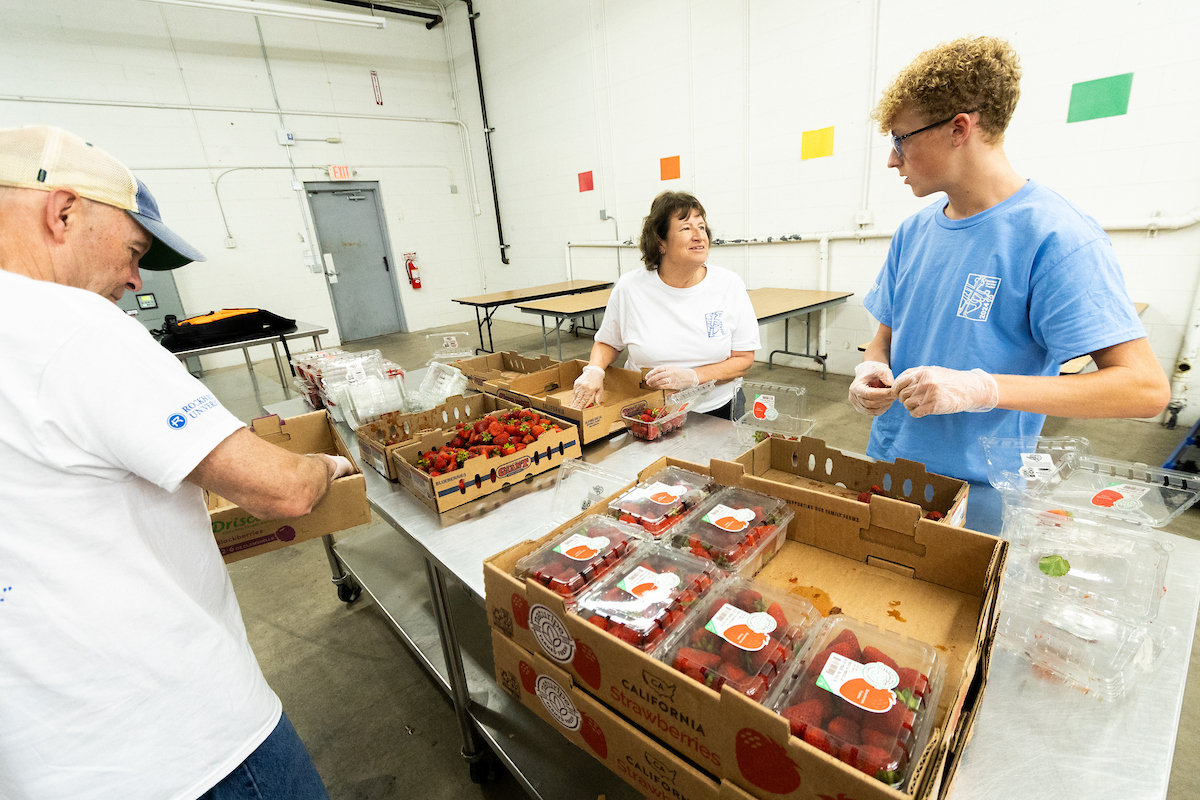
Connecting with Rockhurst University
Rockhurst students give over 20,000 hours of service each year to approximately 100 organizations in Kansas City and in their home communities. The Center for Service Learning provides clearinghouse services to nonprofit organizations and schools in Kansas City to market potential service opportunities to Rockhurst students and Rockhurst student organizations. The Center for Service Learning adheres to all University policies and procedures to ensure a nondiscriminatory learning environment.
Engage Rockhurst is the volunteer management site for students, faculty, and staff to view community partners and volunteer opportunities. To promote your community organization or volunteer opportunities on that site, please complete the registration form to become a Community Partner.
Interested in Participating in Service-Learning?
Service Learning is a teaching methodology that extends learning beyond the classroom and into the community through relevant and meaningful service. If you have community-based projects or semester-long opportunities for students, please contact the Center for Service Learning to see if there is a service-learning course that would benefit your project.
Working with students and faculty for service-learning differs from working with volunteers. Here are some tips for planning effective service-learning projects. They are organized to provide a series of steps for working with the Center for Service Learning and faculty members to plan service-learning projects. Most of the steps can be completed during one meeting, with a commitment to follow up on the next steps.
- Begin with timing — what timetable of planning and projects works for you and with the academic calendar?
- Identify potential activities students could undertake for the organization
- Determine the amount of time students will spend on service-learning projects
- Identify objectives for student learning based on the service-learning
- Delineate responsibilities for supervising students while at the community organization
- Discuss the academic calendar and community organization’s timeline
- Determine how many students your organization can supervise — consider student availability and your organization’s hours of operation
- Talk about potential risks and how they might be managed
- Clearly articulate desired outcomes, roles and expectations of each partner --- community organization, faculty and students
- Identify appropriate contacts and communication modes for keeping partners informed of progress and for handling challenges that may arise
- Have orientation sessions specific to the service-learning project
- Put it in writing!
